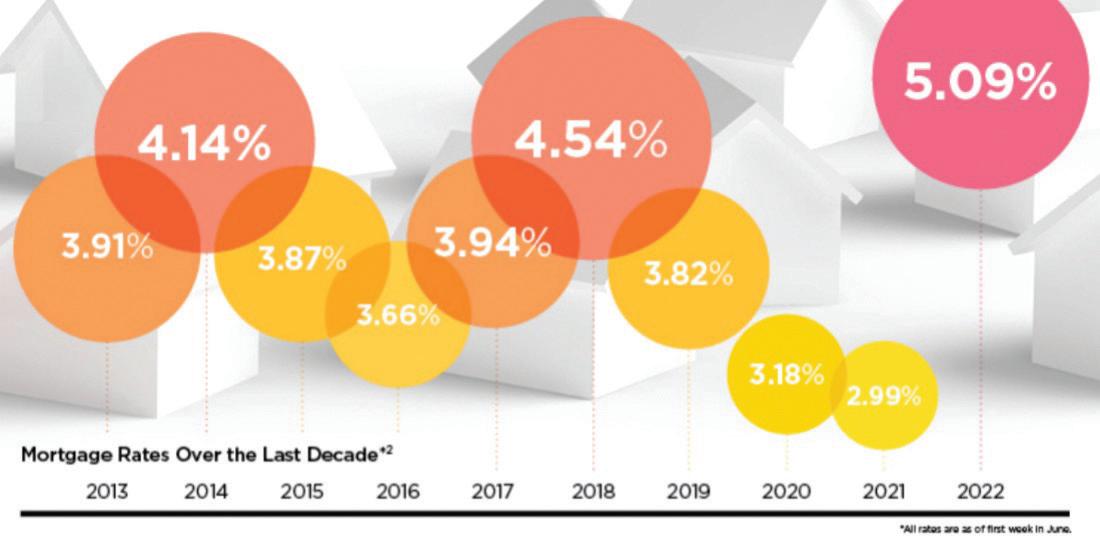
4 minute read
Summer plant health care tips
Summer is the traditional time to prune spring flowering trees and shrubs to help maintain size and shape of plants. Major pruning performed before flower buds set in late summer will enhance next year’s bloom. Light pruning also should be done on broadleaf evergreens, conifers, and plants used as hedges to maintain size and appearance.
As weather turns hot and dry, pay close attention to water requirements of plants. Woody plants benefit from infrequent but deep watering once plants are established. New transplants and plants grown in confined spaces will require more frequent irrigation when regular rainfall does not occur.
Pests that are traditionally active in summer include spider mites, Japanese beetles, insect scale crawlers, lacebugs, and webworms. Powdery mildew begins to become severe as weather turns warm and humid. Deer browse becomes a major concern especially on annuals and perennials. Repellents that are used to deter browse must be applied more frequently to protect new growth as it develops.
Checklist:
1. Have plants inspected for early symptoms of poor health. Trees affected by early stages of stress could display premature fall color in late summer, partial defoliation, and symptoms of moisture stress.
2. Provide supplemental irrigation each week or more often on newly planted trees, shrubs, and older plants stressed with insect or disease problems when rainfall is lacking in summer.
by Steven Austin
3. Prune flowering trees and shrubs such as dogwood, azaleas, rhododendron, and forsythia. Once flower buds begin to form in late summer, judicious pruning reduces the bloom somewhat but should not impact the display significantly.
4. Inspect for pests that commonly arrive during hot, dry weather and apply treatments as needed.
5. Assess canopies for dead branches and structural weaknesses that can be pruned later in winter.
A Wimberley resident, Steven Austin is a member of the Texas Chapter of the International Society of Arboriculture and is an ISA Board Certified Master Arborist and ISA Tree Worker/Climber Specialist. His expertise includes integrated pest management of trees and shrubs and state-of-the-art organic treatments. He holds a commercial pesticide license with the Texas Department of Agriculture and is Texas Oak Wilt Certified by the Texas Forest Service. Steven is an Arborist Representative for Bartlett Tree Experts. Call 512 392 1089 or toll-free at 800 443 8733.
Steven
E
Austin
Arborist Representative ISA Certified Arborist #TX-3616AT bartlett.com

SAustin@bartlett.com
1324 Old Martindale Road, San Marcos, TX 78666 p 512.392.1089 f 512.392.7398


The last few years have been anything but normal when it comes to real estate. A normal market is balanced between a buyer and seller – one side does not have much of an advantage over the other. Many analysts believe that in a future normal market, 30-year fixed-rate mortgages will be around 5%-6%, slightly higher than in the past 10 years.

by AJ Harwood
• Buyers’ perspective
• More homes to consider
• Less urgency to act immediately
• Home inspections are not waived
• Can request concessions from sellers
• Fewer bidding wars
• Homes are not bought sight-unseen
• Seller’s perspective
• Homes priced right sell quickly
• Equity in home built over time
• Homes may stay on the market longer
• Offers received at or close to the asking price
• May need to make repairs and/or concessions
I know the market can be confusing, but I am here to offer clear, concise information you can trust. Feel free to contact me and I will answer any questions you have. Texas is still one of the Top States people are moving to.
If you are wondering what your home would look like on the market, give me a call! I would be honored to complete a Comparative Market Analysis (CMA) to see what homes in your neighborhood are selling for right now – you might be surprised! At the end of the day, real estate is local, and I’m here to walk you through with the best information so you can make the best choices and know how it applies to you in the Wimberley and Texas Hill Country area. If you’re thinking of selling your home, call me today! Experience matters – especially in the current changing market!
Allison “AJ” Harwood, JD, MBA, GRI, is the Broker/Owner of RE/MAX REAL PROPERTIES. When Experience matters…Call “AJ” Today! Your Hill Country Luxury Property Expert. Member: Institute for LUXURY HOME MARKETING. He is Wimberley’s “Peak Producer” offering Professional Representation for both Buyers and Sellers in Real Estate Transactions. He may be contacted at 512.847.“SOLD” 7653 or at AJ@REMAX.net or drop by our office location at 160 South River in the South River Business Park, Wimberley, Texas 78676.

It's heartbreaking to hear stories of people losing money as a result of fraud or financial exploitation, especially if they are older and vulnerable. People age 70 and older reported losses of $567 million in 2022.(1) Your parents could be at risk, and you want to protect them, but how?
Look for warning signs that your parents have been victimized, or are at risk of being influenced, manipulated, or coerced by a stranger or someone they know.
• Unusual bank activity, unexplained withdrawals, or insufficient fund notices
• Missing checks, credit cards, or financial statements
• Lost money or valuables that can’t be located
• Relationships with people who have undue influence
• Unexplained changes to legal documents
• Declining memory and decision-making skills
Check in with your parents to help spot issues. If they have fallen victim to a financial scam or are being pressured for money from someone they know, they may be embarrassed or reluctant to tell you. Try to remain objective and non-judgmental, and patiently listen to their views while expressing your concern for their wellbeing.
by Scott G. Hackett, CFP®
Laying some groundwork to help prevent future incidents is also important. Talk to your parents about how to handle common scams. Encourage them to get a second opinion before acting on any request for information or money, even if it appears to come from their financial institution, a government agency like the IRS, Social Security Administration, or even a grandchild in trouble.
Encourage your parents to visit with an elder law attorney or financial professional to address concerns and implement legal and financial safeguards. They might also want to add layers of protection to their financial accounts, such as naming a trusted contact or setting up account alerts.
People are often reluctant to report financial fraud or exploitation, either out of embarrassment or fear of being wrong. If you suspect your parents have been victimized, you can get help from many sources, including the National Elder Fraud Hotline, sponsored by the U.S. Department of Justice. Call 833 372 8311 to connect with case managers.

(1) Federal Trade Commission, 2022










